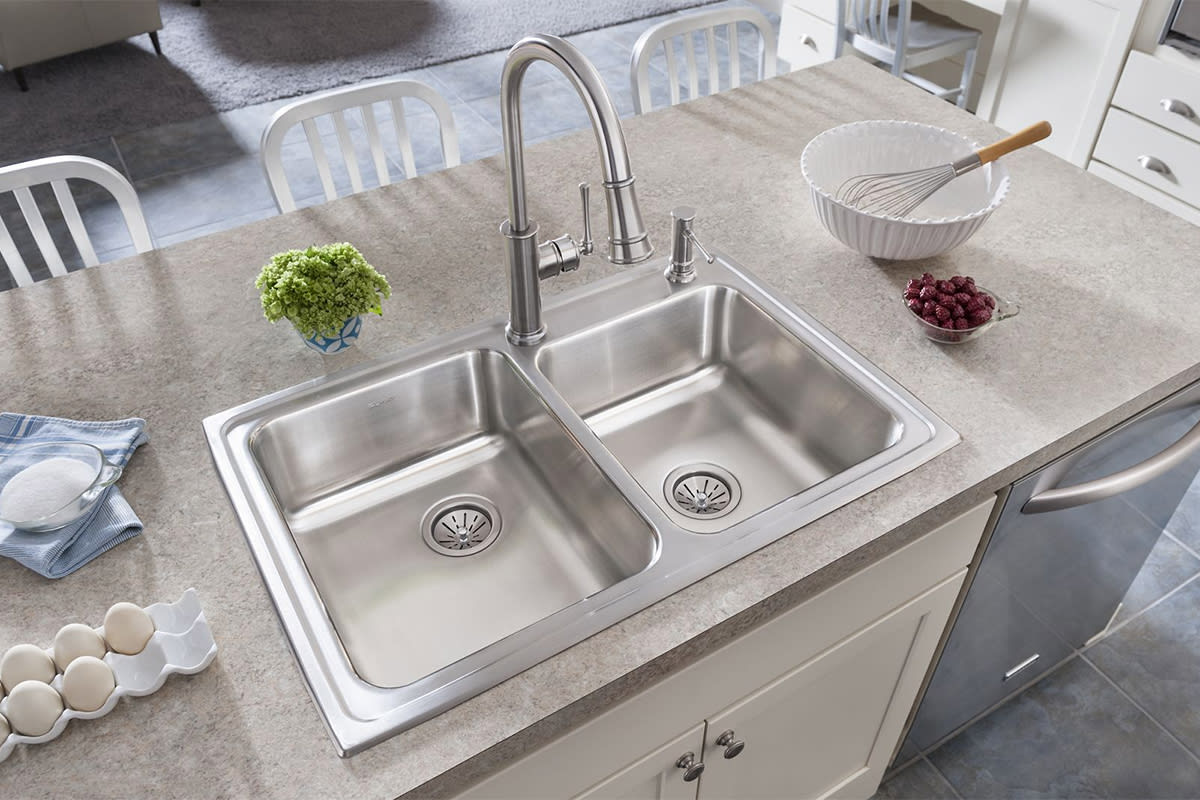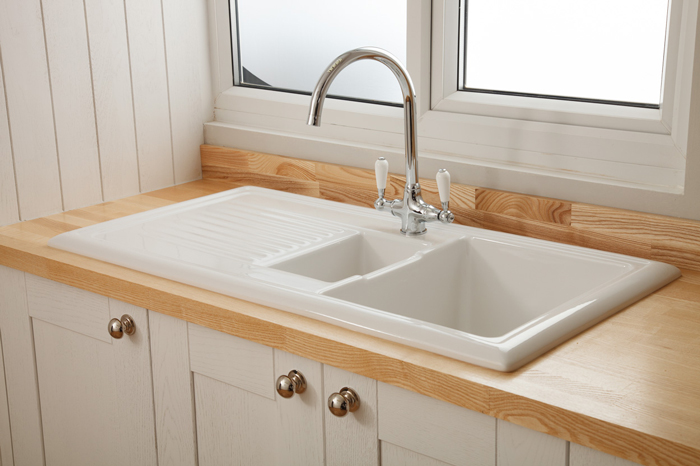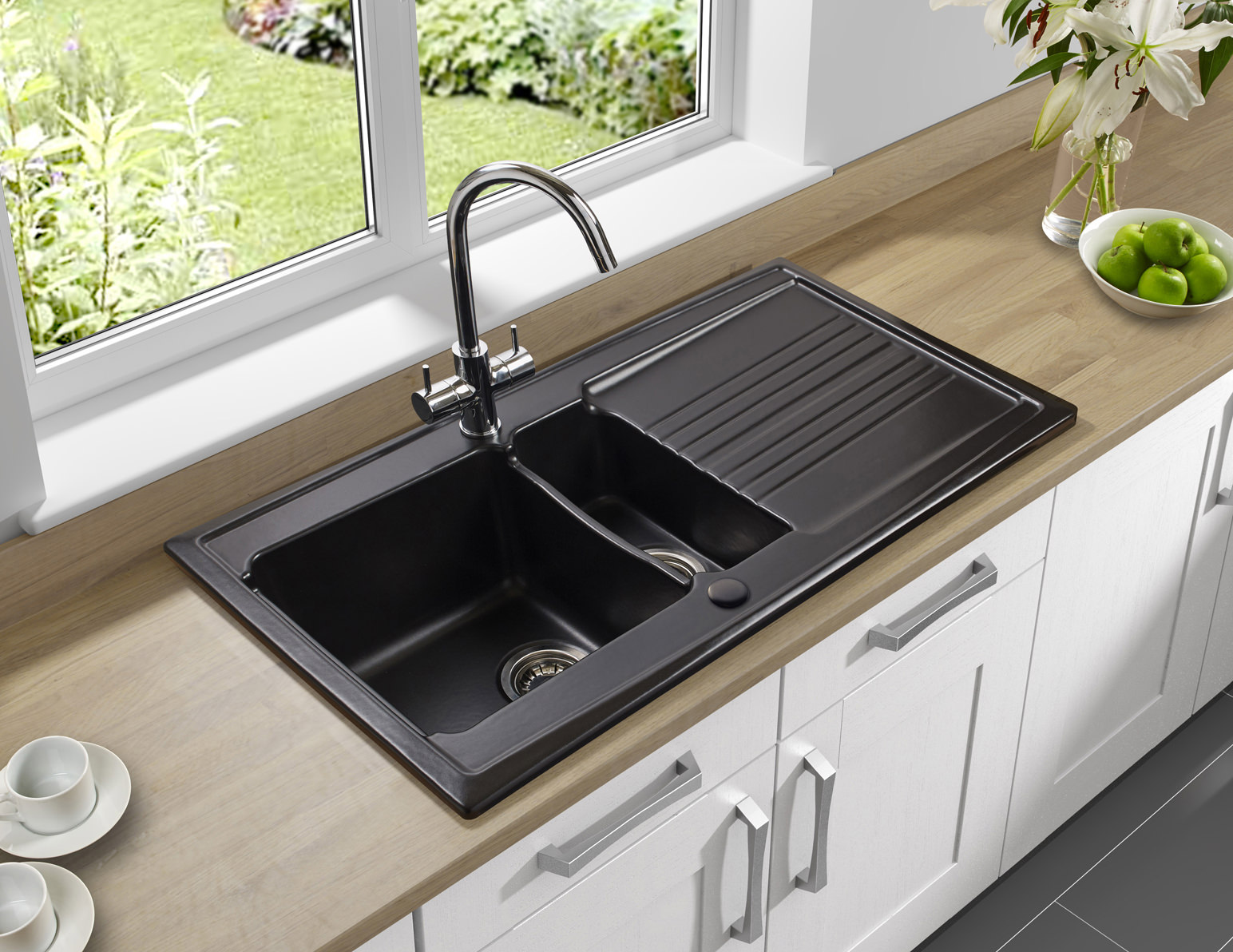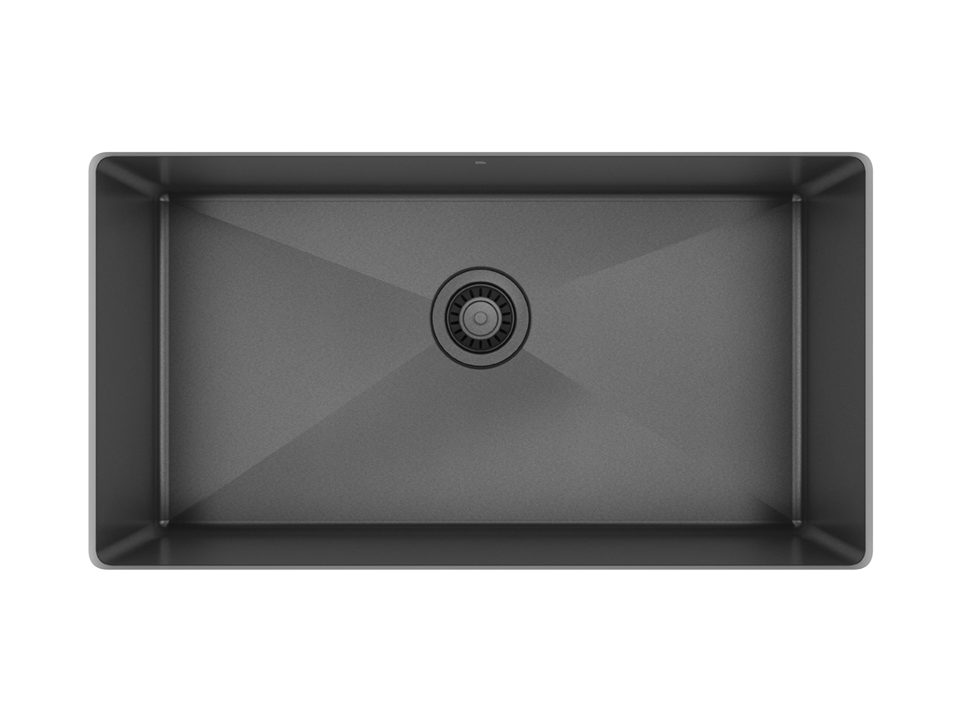The kitchen sink is an essential part of any kitchen, used for tasks such as washing dishes, preparing food, and even bathing small children. But have you ever wondered how much it actually weighs? The average weight of a kitchen sink can vary based on several factors, including the material, size, and type of sink. In this article, we will explore the different types of kitchen sinks and their average weights to help you choose the right one for your home.1. Average weight of a kitchen sink
The weight of a kitchen sink can range from 8 pounds to 300 pounds, depending on the material used. The most common materials for kitchen sinks are stainless steel, cast iron, and ceramic. Stainless steel sinks are typically the lightest, while cast iron and ceramic sinks are heavier due to their solid construction.2. How much does a kitchen sink weigh?
There is no one standard weight for all kitchen sinks, as it can vary greatly depending on the size and material. However, the average weight of a standard size kitchen sink, which is 22 inches by 30 inches, is around 20 to 30 pounds.3. Standard weight of a kitchen sink
Stainless steel is the most popular material for kitchen sinks due to its durability, affordability, and easy maintenance. The average weight of a stainless steel kitchen sink can range from 8 to 20 pounds, depending on the size and thickness of the steel. Thicker steel will result in a heavier sink.4. Average weight of a stainless steel kitchen sink
Double kitchen sinks are a great option for larger households or for those who do a lot of cooking and cleaning. The weight of a double kitchen sink can range from 20 to 80 pounds, depending on the material and size. The weight is evenly distributed between the two bowls, making it easier to install and handle.5. Weight of a double kitchen sink
Cast iron sinks are known for their durability and classic look. However, they are much heavier compared to other materials, with an average weight of 60 to 300 pounds. This weight can be a challenge during installation, so it is important to have a strong support system in place.6. Average weight of a cast iron kitchen sink
Farmhouse sinks, also known as apron front sinks, are a popular choice for their rustic and farmhouse-style design. These sinks are typically larger and deeper than traditional sinks, resulting in a weight of 100 to 300 pounds. Their weight can also vary depending on the material used, such as fireclay or cast iron.7. Weight of a farmhouse kitchen sink
Ceramic sinks are a popular choice for their traditional and elegant look. They are also known to be durable and resistant to scratches and stains. The average weight of a ceramic kitchen sink can range from 60 to 120 pounds, depending on the size and thickness of the ceramic.8. Average weight of a ceramic kitchen sink
Drop-in sinks, also known as top mount or self-rimming sinks, are a popular choice for their easy installation and affordability. These sinks are placed on top of the countertop, with their weight supported by the rim. The weight of a drop-in kitchen sink can range from 20 to 80 pounds, depending on the material and size.9. Weight of a drop-in kitchen sink
Undermount sinks are installed underneath the countertop, creating a seamless and modern look. These sinks are typically lighter compared to other types of sinks, with an average weight of 20 to 60 pounds. However, the weight can vary depending on the material and size of the sink. In conclusion, the average weight of a kitchen sink can range from 8 to 300 pounds, depending on the material, size, and type of sink. It is important to consider the weight of the sink when choosing the right one for your kitchen, as it can affect the installation process and the support system needed. We hope this article has provided you with valuable information to help you make an informed decision when selecting a kitchen sink for your home.10. Average weight of an undermount kitchen sink
The Importance of Choosing the Right Kitchen Sink for Your Home
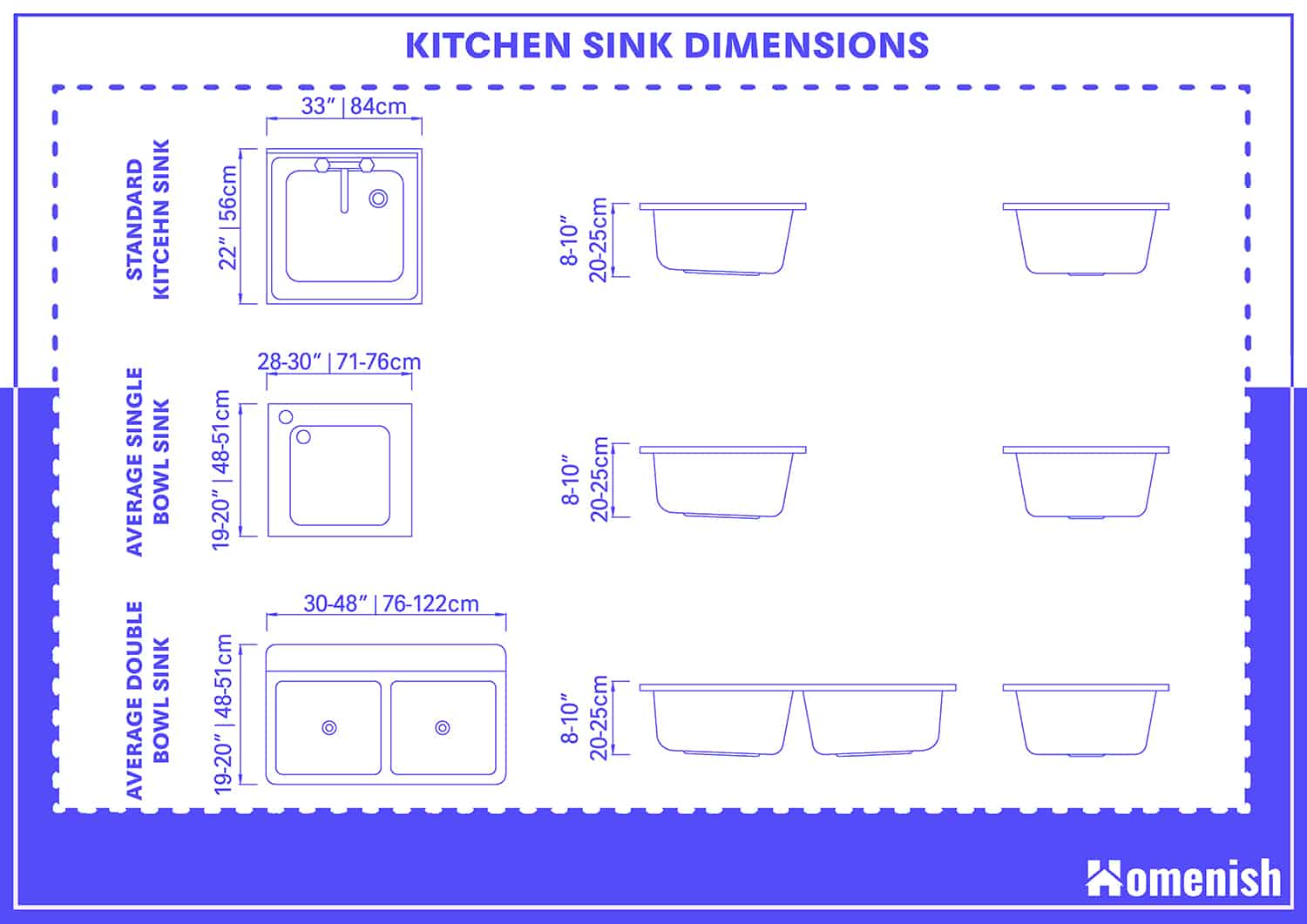
Factors to Consider
 When designing a house, the kitchen is often considered the heart of the home. It's where meals are prepared, conversations are had, and memories are made. As such, it's crucial to carefully consider every aspect of the kitchen, including the
average weight of the kitchen sink
. While it may seem like a minor detail, the type and weight of your kitchen sink can have a significant impact on the overall design and functionality of your space. Here are some factors to keep in mind when choosing the right kitchen sink for your home.
When designing a house, the kitchen is often considered the heart of the home. It's where meals are prepared, conversations are had, and memories are made. As such, it's crucial to carefully consider every aspect of the kitchen, including the
average weight of the kitchen sink
. While it may seem like a minor detail, the type and weight of your kitchen sink can have a significant impact on the overall design and functionality of your space. Here are some factors to keep in mind when choosing the right kitchen sink for your home.
Material
Size and Shape
 The size and shape of your kitchen sink can also play a role in its weight. A larger, deeper sink will naturally weigh more than a smaller, shallower one. Additionally, the shape of the sink can also affect its weight, as sinks with multiple bowls or intricate designs may require more support and be heavier overall. When choosing the size and shape of your sink, consider your cooking and cleaning habits, as well as the overall design and layout of your kitchen.
The size and shape of your kitchen sink can also play a role in its weight. A larger, deeper sink will naturally weigh more than a smaller, shallower one. Additionally, the shape of the sink can also affect its weight, as sinks with multiple bowls or intricate designs may require more support and be heavier overall. When choosing the size and shape of your sink, consider your cooking and cleaning habits, as well as the overall design and layout of your kitchen.
Installation Method
 Lastly, the installation method of your kitchen sink can also impact its weight. Top-mount sinks, also known as drop-in sinks, are the most common and easiest to install, as they simply drop into a hole cut in the countertop. Undermount sinks, on the other hand, are secured to the bottom of the countertop and require additional support, making them heavier.
Farmhouse
or
apron-front
sinks, which have a front panel that extends past the edge of the countertop, can also be heavy due to their size and installation method.
Lastly, the installation method of your kitchen sink can also impact its weight. Top-mount sinks, also known as drop-in sinks, are the most common and easiest to install, as they simply drop into a hole cut in the countertop. Undermount sinks, on the other hand, are secured to the bottom of the countertop and require additional support, making them heavier.
Farmhouse
or
apron-front
sinks, which have a front panel that extends past the edge of the countertop, can also be heavy due to their size and installation method.













:max_bytes(150000):strip_icc()/why-does-my-kitchen-sink-smell-like-sewage-4707719_01-2030e27351fe4c6c9e1d94145dbbe30a.jpg)

/cdn.vox-cdn.com/uploads/chorus_asset/file/19523114/stainless_steel.jpg)



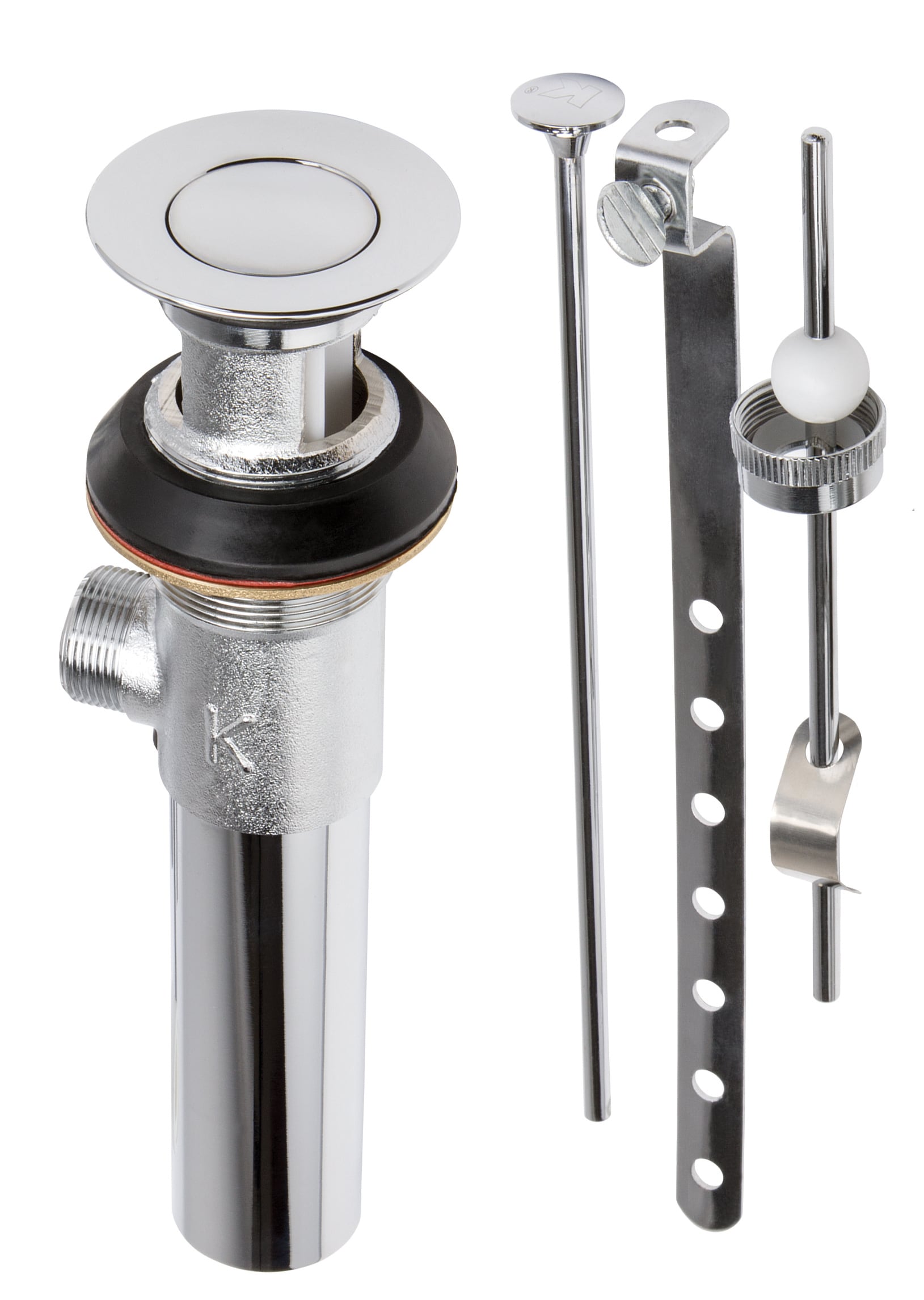

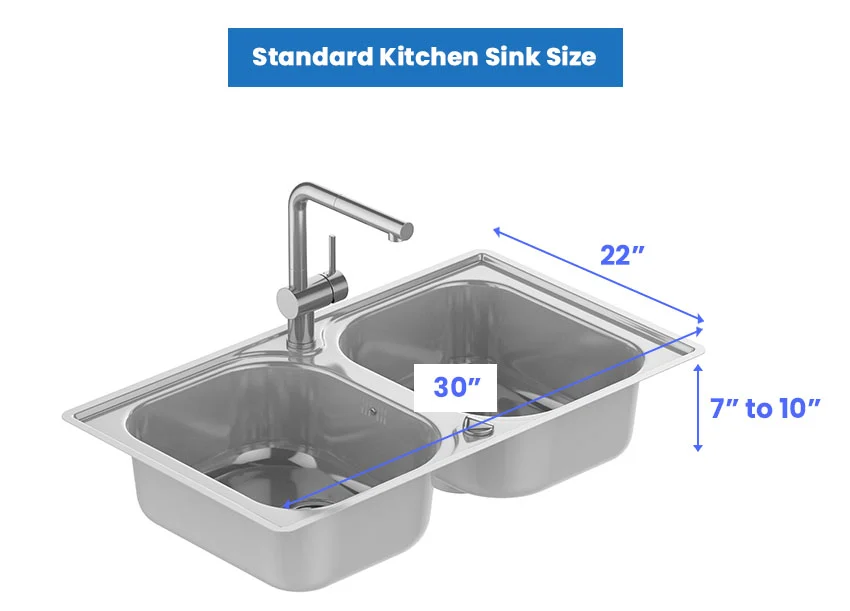

















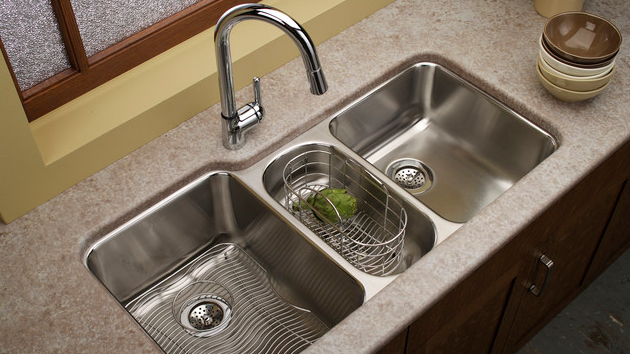




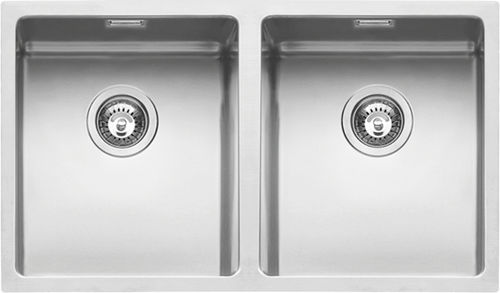











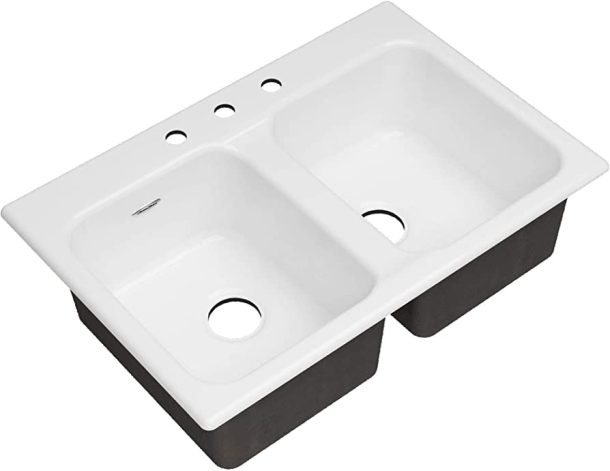






:max_bytes(150000):strip_icc()/farmhouse-kitchen-sink-2000-df9b917dba344f61a835dc313bf82a49.jpg)













